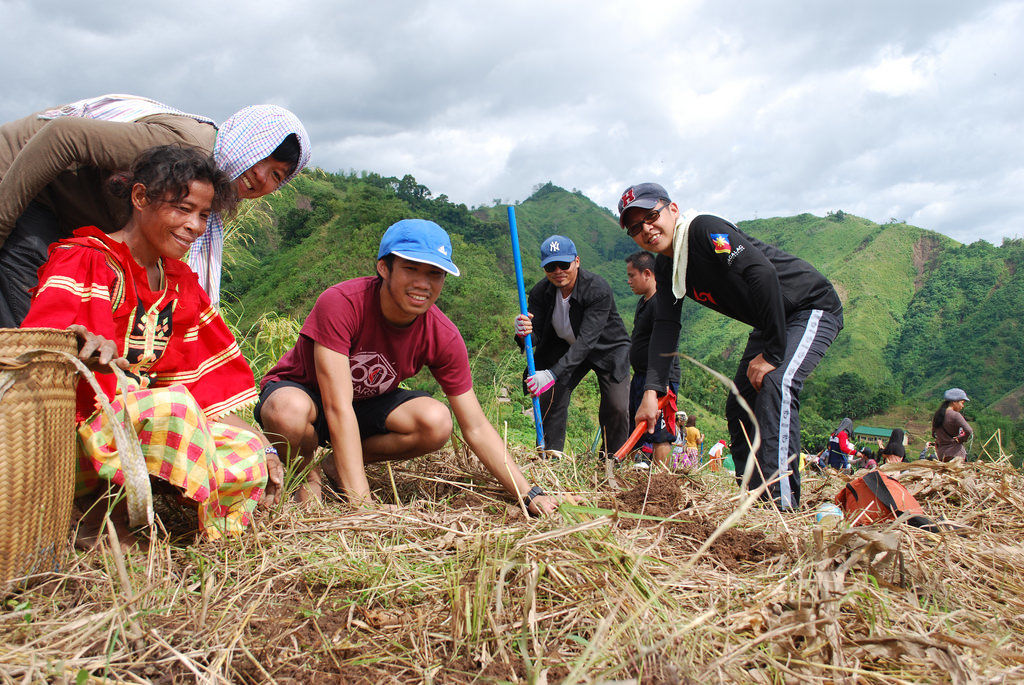Hunger & Poverty in the U.S.
As a church we are called to support the poor and challenge the rich.

Despite a growing economy and the immense wealth of the United States, many communities, families and individuals continue to struggle with poverty and hunger.
Every 33 seconds a baby will be born into poverty. And 13 percent of American households — over 42 million men, women, and children — are experiencing food insecurity right now.
Truly I tell you, just as you did it to one of the least of these who are members of my family, you did it to me.
JesusThe persistence of poverty and hunger in the shadow of glorified riches lies in stark contrast to a faithful vision of our common life together.
While churches respond to immediate needs by providing food, clothing and shelter, we are called also to challenge the systems and practices that have led to economic inequality, poverty and hunger. In relationship with people impacted by our broken economic system, we can together give life to a new vision – one that embraces God’s economy of abundance and ensures that all God’s children have the opportunity to thrive.
What the Bible and The United Methodist Church Say:
Throughout scripture, God is revealed to be aligned with the cause of the poor and downtrodden, bringing down the powerful from their thrones and lifting up the lowly. (Luke 1:52-53)
And we understand from Christ that to encounter the poor and oppressed is to encounter Christ himself: “Lord, when was it that we saw you hungry and gave you food, or thirsty and gave you something to drink? … Truly I tell you, just as you did it to one of the least of these who are members of my family, you did it to me.” (Matthew 25:37-40)
We understand that central to our faith is serving others and ensuring that the basic needs of our neighbors are met. The United Methodist Church also reminds us of our duty to seek justice. We are called to challenge those policies and practices that give rise to poverty.
“As a church we are called to support the poor and challenge the rich. To begin to alleviate poverty, we support such policies as: adequate income maintenance, quality education, decent housing, job training, meaningful employment opportunities, adequate medical and hospital care, humanization and radical revisions of welfare programs, work for peace and efforts to protect creation’s integrity” (Social Principles, ¶163.E)
Three Things You Can Do:
- Learn more about the economic realities of your community and discuss with your church and conference leaders how to expand justice ministries that not only meet the immediate needs of your neighbors but together tackle the root causes of hunger and poverty.
- Connect with other United Methodists who are engaged in our church-wide focus on Ministry with the Poor and journeying together with our neighbors struggling in poverty.
- Tell your elected officials to put the needs of those living on the economic margins at the center of our agenda for a just economy.
Related Resources
For more information on Hunger in the U.S., visit:
- United Methodist Book of Resolutions:
- God’s Renewed Creation
